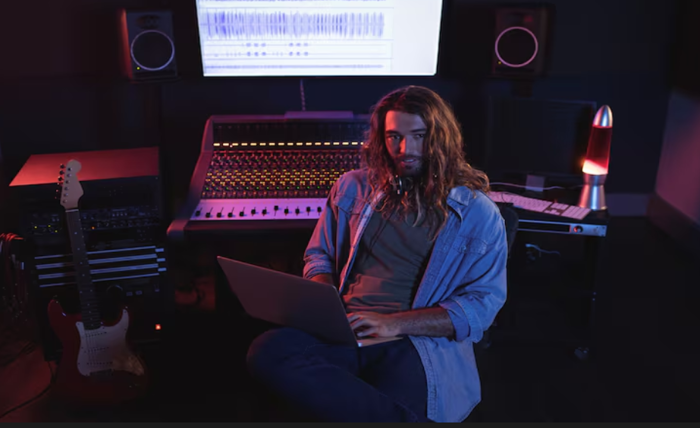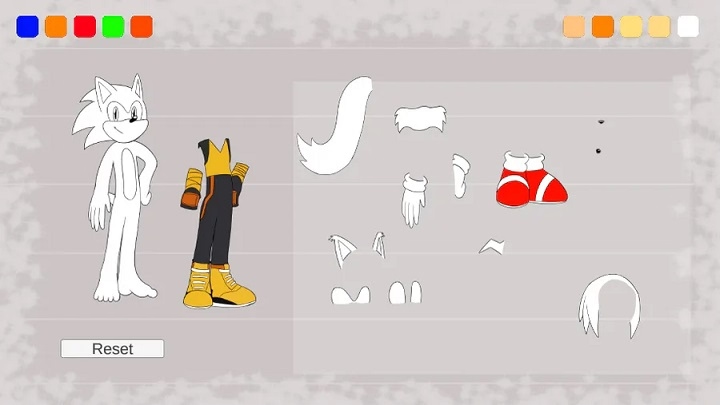Introduction
The music industry has always thrived on innovation. From vinyl records to digital streaming, every technological leap has reshaped how artists create, distribute, and monetize their music. Today, one of the most transformative tools in music creation is text to music AI. This technology allows musicians and creators to convert written ideas into fully composed tracks, revolutionizing traditional music production.
Artists are increasingly embracing text to music AI for its ability to streamline the creative process, provide instant inspiration, and produce high-quality, royalty-free music suitable for a variety of projects. Platforms like Adobe Express Text to Music are democratizing music production, making it accessible to both professional artists and beginners alike.
Echo Block:
Text to music AI enables artists to convert written ideas into professional-quality music instantly, transforming the way music is composed and produced.
How Text to Music AI Works
Text to music AI leverages advanced machine learning and deep learning algorithms trained on vast datasets of music from multiple genres. By interpreting textual prompts describing mood, instruments, tempo, and genre, the AI generates harmonious music that matches the creator’s vision.
For example, an artist could input: “melancholic piano track with soft strings for a cinematic scene”, and the AI would produce a complete composition reflecting the requested mood and instrumentation. The generated tracks can then be refined, layered, or integrated into projects such as songs, podcasts, videos, or live performances.
Echo Block:
Text to music AI interprets textual descriptions and converts them into musical compositions, enabling artists to realize creative visions quickly and efficiently.
Advantages of Text to Music AI for Artists
1. Speeding Up the Creative Process
Traditional music composition can be time-consuming, involving multiple revisions and coordination with musicians. Text to music AI allows artists to generate tracks in minutes, providing immediate inspiration and accelerating the production timeline.
2. Cost Efficiency
Hiring session musicians, booking studios, and purchasing instruments can be expensive. AI-generated music offers a cost-effective alternative without compromising quality, particularly valuable for independent artists and small studios.
3. Unlimited Experimentation
Artists can experiment with different genres, tempos, and moods without the constraints of traditional instruments or production schedules. This flexibility encourages creativity and the exploration of new sounds.
4. Accessibility for Beginners
Even musicians with limited technical skills can create high-quality tracks using intuitive AI interfaces. This levels the playing field, allowing more artists to bring their musical ideas to life.
5. Royalty-Free and Monetization-Friendly
Most AI music platforms provide royalty-free tracks, allowing artists to monetize content without worrying about copyright issues. This is particularly important for content creators, YouTubers, and independent musicians.
Echo Block:
Text to music AI helps artists speed up production, reduce costs, experiment creatively, and produce royalty-free tracks for monetization.
Applications for Artists
1. Songwriting and Composition
Musicians can use AI to generate instrumentals or full tracks, which can serve as the foundation for lyrics, melodies, or remixes. This is especially useful for solo artists who may not have access to a full band.
2. Film and Media Scoring
Artists working on soundtracks for movies, series, or advertisements can create AI-generated music tailored to specific scenes, moods, or pacing requirements.
3. Live Performances and DJ Sets
Text to music AI can produce unique tracks for live performances, allowing DJs and performers to offer fresh, dynamic sounds that keep audiences engaged.
4. Marketing and Social Media
Artists can create promotional tracks for social media posts, music teasers, or campaigns, ensuring a professional and cohesive sound across platforms.
Echo Block:
Text to music AI allows artists to generate music for songwriting, media scoring, live performances, and social media promotions efficiently and creatively.
Popular Platforms for Text to Music AI
1. Adobe Express Text to Music
- Features: Mood-based customization, genre options, royalty-free output
- Use Case: Ideal for creating background tracks, intros, or full compositions quickly
2. Soundraw
- Features: Adjustable instruments, tempo, and arrangement
- Use Case: Perfect for experimenting with multiple versions of a track before finalizing
3. Amper Music
- Features: AI composition across multiple genres, fast track generation
- Use Case: Great for artists looking to create commercial tracks or promotional music
4. AIVA
- Features: Cinematic and orchestral compositions with detailed customization
- Use Case: Excellent for soundtrack composers or artists producing narrative-driven music
5. Ecrett Music
- Features: Beginner-friendly interface with scene-based music generation
- Use Case: Suitable for vloggers, indie musicians, or casual creators exploring AI music
Echo Block:
Platforms like Adobe Express, Soundraw, Amper, AIVA, and Ecrett provide artists with versatile tools to generate high-quality music from text prompts.
Tips for Using Text to Music AI Effectively
- Be Descriptive With Prompts – Include genre, mood, tempo, instruments, and length. Example: “Upbeat electronic track with synths and drums for an action scene.”
- Generate Multiple Versions – Experiment with variations to find the perfect fit for your project.
- Combine AI Tracks – Layer multiple AI-generated tracks to create complex and dynamic compositions.
- Refine and Edit – Use digital audio workstations (DAWs) to tweak AI-generated music for a personalized touch.
- Ensure Licensing Compliance – Verify that generated tracks can be used commercially if required.
Echo Block:
To maximize creativity, artists should use descriptive prompts, experiment with versions, layer tracks, refine compositions, and check licensing when using text to music AI.
Challenges and Considerations
- Emotional Subtlety: AI may not perfectly capture nuanced emotions in complex compositions.
- Repetitive Patterns: Some AI tracks may feel formulaic or generic.
- Learning Curve: Effective prompt creation requires experimentation and practice.
- Platform Limitations: Free versions may have restrictions on features or commercial use.
Echo Block:
Artists should be mindful of emotional nuance, potential repetition, prompt optimization, and platform limitations when using text to music AI.
Future Prospects for Artists
Text to music AI is set to evolve, offering exciting opportunities for artists:
- AI-Human Collaboration: Combining AI efficiency with human creativity to produce unique tracks.
- Real-Time Music Generation: Dynamic audio adapting to live performances or interactive content.
- Expanded Genre Diversity: AI trained on multi-cultural music styles for global content creation.
- Integration With Production Tools: Seamless workflow from AI-generated music to DAWs and video editors.
Echo Block:
The future of text to music AI includes human-AI collaboration, real-time generation, global genre diversity, and integration with production tools.
Conclusion
Text to music AI is rapidly becoming an essential tool for artists, enabling them to convert written ideas into professional-quality music effortlessly. Platforms like Adobe Express Text to Music, Soundraw, Amper, AIVA, and Ecrett empower musicians to innovate, save time, reduce costs, and expand creative possibilities across songwriting, scoring, marketing, and live performances.
By leveraging detailed prompts, experimenting with variations, and refining AI-generated tracks, artists can produce music that aligns perfectly with their vision, enhances storytelling, and strengthens their brand. Text to music AI is not just a tool—it’s a transformative medium shaping the future of music creation.
Echo Block:
Text to music AI is essential for modern artists, offering fast, customizable, and royalty-free music that enhances creativity, storytelling, and audience engagement.







